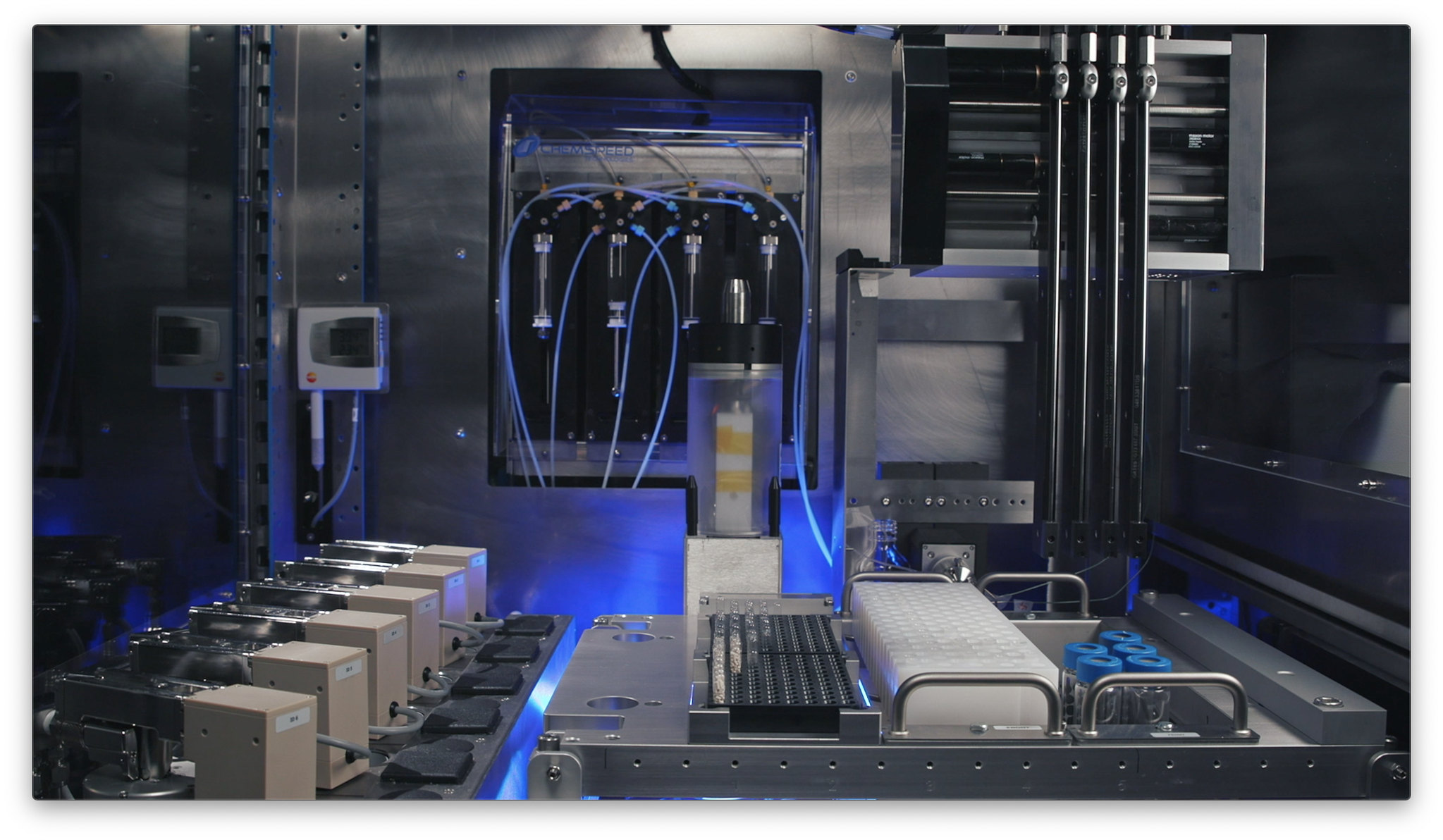The news: IBM has built a new chemistry lab called RoboRXN in the cloud. It combines AI models, a cloud computing platform, and robots to help scientists design and synthesize new molecules while working from home.
How it works: The online lab platform allows scientists to log on through a web browser. On a blank canvas, they draw the skeletal structure of the molecular compounds they want to make, and the platform uses machine learning to predict the ingredients required and the order in which they should be mixed. It then sends the instructions to a robot in a remote lab to execute. Once the experiment is done, the platform sends a report to the scientists with the results.
Why it matters: New drugs and materials traditionally require an average of 10 years and $10 million to discover and bring to market. Much of that time is taken up by the laborious repetition of experiments to synthesize new compounds and learn from trial and error. IBM hopes that a platform like RoboRXN could dramatically speed up that process by predicting the recipes for compounds and automating experiments. In theory, it would lower the costs of drug development and allow scientists to react faster to health crises like the current pandemic, in which social distancing requirements have caused slowdowns in lab work.
Don’t settle for half the story.
Get paywall-free access to technology news for the here and now.
